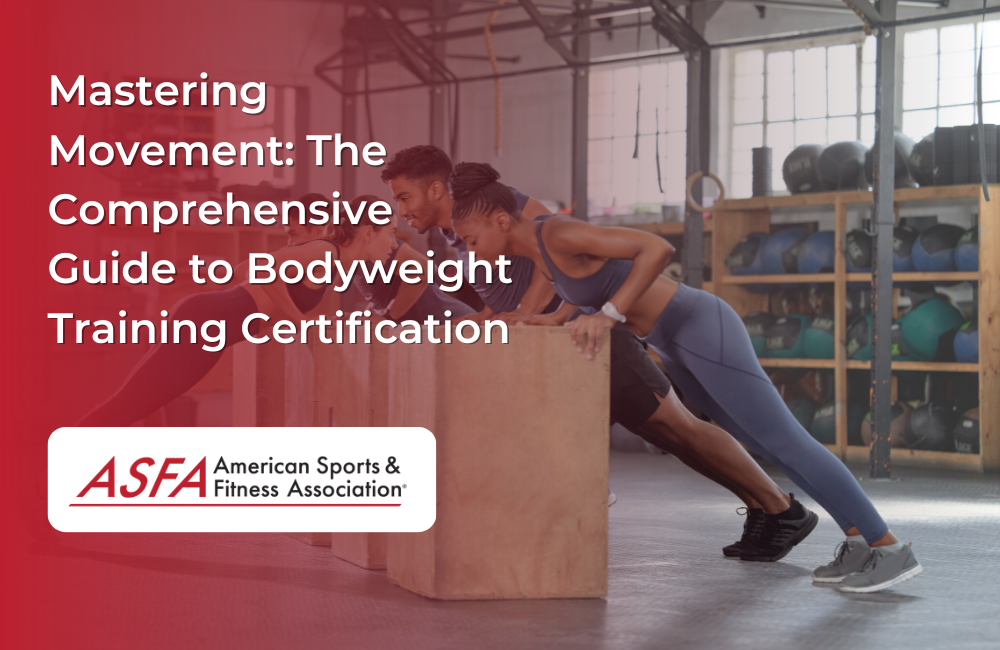Bodyweight training, also known as calisthenics, has gained significant popularity in recent years for its effectiveness in building strength, improving flexibility, and enhancing overall fitness. Many individuals and fitness professionals are now seeking bodyweight training certifications to gain a deeper understanding of this training methodology and to provide clients with safe and effective workouts. In this blog, we will explore the significance of bodyweight training certifications, the benefits they offer, and what to expect when pursuing certification in this field.
Understanding Bodyweight Training Certification
A bodyweight training certification is a specialized training program designed to educate fitness enthusiasts and professionals on the principles, techniques, and safety considerations of bodyweight exercises. These certifications are typically offered by reputable fitness organizations and can be pursued by fitness trainers, yoga instructors, personal trainers, and anyone interested in expanding their knowledge of bodyweight training.
The Benefits of Bodyweight Training Certification
- Expertise: Certification programs provide in-depth knowledge about bodyweight exercises, including proper form, progressions, and regressions. This expertise allows trainers to create customized and effective workout programs for clients.
- Credibility: Holding a bodyweight training certification demonstrates your commitment to professional development and enhances your credibility as a fitness expert.
- Versatility: Bodyweight exercises can be adapted for individuals of all fitness levels and can be performed virtually anywhere, making them a valuable addition to any fitness professional's toolkit.
- Inclusivity: Bodyweight training is accessible to a wide range of clients, including those who may have limited access to gym equipment or prefer a more functional and holistic approach to fitness.
- Variety: Certification programs often cover a diverse range of bodyweight exercises, from basic movements to advanced skills like handstands and muscle-ups, allowing trainers to offer a variety of workout options.
What to Expect from a Bodyweight Training Certification
While the specifics of bodyweight training certification programs may vary, they typically include the following components:
1. Theoretical Knowledge:
- Anatomy and physiology relevant to bodyweight training.
- Principles of exercise programming and progression.
- Safety considerations and injury prevention.
2. Practical Skills:
- Demonstrations of proper form and technique for various bodyweight exercises.
- Progressions and regressions for different fitness levels.
- Hands-on practice and coaching experience.
3. Assessment:
- Written exams to test theoretical knowledge.
- Practical assessments to evaluate coaching skills and exercise proficiency.
4. Continuing Education:
- Some certifications require ongoing continuing education to stay updated on the latest developments in bodyweight training.
Bodyweight training certification is a valuable investment for fitness professionals and enthusiasts looking to expand their knowledge and offer effective, versatile, and inclusive workouts. Whether you're interested in becoming a certified bodyweight trainer or simply want to deepen your understanding of this training method, pursuing a certification can open doors to new opportunities and help you make a positive impact on the fitness journey of others.





